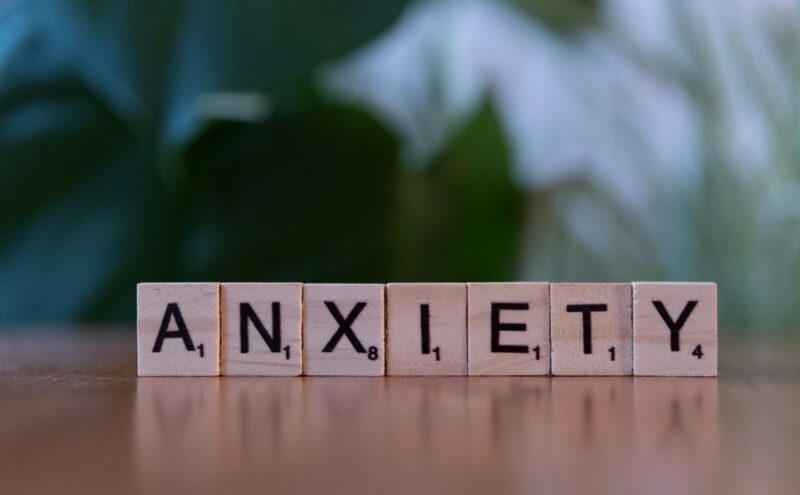Teenagers nowadays must navigate a complex environment that can cause worry about many things, from social media pressures to academic demands. Coping skills and strategies for teenagers struggling with anxiety and panic attacks are now more necessary than ever since the issue of teen mental health is becoming more and more prominent, which is not unexpected given the extreme pressures placed on teenagers nowadays.
But how do teens cope with anxiety? What coping mechanisms or strategies for anxious teens are there? You’ll find it in this article. We will explore six useful anxiety-coping skills for teens.
How to Help a Teenager with Anxiety and Panic Attacks
Before introducing any anxiety coping skills for teens, it’s crucial to understand what anxiety looks like. Unlike normal stress, anxiety in teens can be overwhelming and persistent, making it hard for them to focus, socialize, or function day-to-day.
The first step is to accept your teen’s feelings and anxieties without passing judgment. Remind them that many teenagers have similar feelings.
Show tolerance, compassion, and love. Encourage incremental steps and gradual exposure to difficult circumstances. Over time, assist them in developing their confidence and promoting constructive social connections.
What Are Coping Skills?
The term “coping skills” refers to the positive and constructive methods you may use to assist yourself in enduring a challenging period (such as managing stress, quitting an unhealthy habit, resisting temptations, etc.).
When people feel overburdened, they often revert to their old patterns. You must learn healthy coping mechanisms for stress at a young age.
Research indicates that learning effective coping mechanisms early in childhood facilitates life transitions, boosts self-esteem, and enhances overall adjustment over time.
How do teens cope with anxiety? What are the 6 Anxiety Coping Skills for Teenagers?
Teenagers frequently suffer anxiety, but they can feel more in control if they have the appropriate coping mechanisms.
These six practical anxiety coping skills for teens can be practiced at any time. They include:
- Recognize and Reframe Unhelpful Thoughts
Recognizing and combating harmful beliefs, or thought distortions, is one of the best ways for teenagers to cope with their anxiety.
Some of these thoughts are listed below:
- An all-or-nothing mentality sees things in extremes: achievement or failure, flawless or damaged.
- Personalizing makes you believe that you are to blame for everything that goes wrong.
- Catastrophizing is the assumption that the worst will inevitably happen, frequently accompanied by “what if” ideas.
Anxiety spirals can be lessened by learning to recognize these tendencies. Replace these ideas with more balanced ones to engage in cognitive restructuring.
- Use Grounding Techniques to Stay Present
Grounding strategies assist in refocusing your attention on the present when worry becomes overwhelming. Tryout some of these techniques:
What are 5 ways to cope with anxiety for teenagers? The 5-4-3-2-1 Grounding Method
- 1 thing you can taste
- 2 things you can smell
- 3 things you can hear
- 4 things you can touch
- 5 things you can see
What is The 3-3-3 Rule for Anxiety?
All you have to do in this technique is to look around and:
- Name 3 sounds you hear
- Move 3 body parts (like your toes, shoulders, or fingers)
- Name 3 things you see
Both methods help relax the body and stop nervous thoughts. You can also try:
- Closing your eyes and relaxing
- Distraction techniques
- Spending time in nature
- Develop a Mindfulness and Relaxation Routine
Mindfulness lowers stress and increases emotional awareness. Teens who practice mindfulness are better able to remain at the moment without passing judgment on their feelings or themselves.
Teens have a variety of soothing techniques to select from, like
- Emotional awareness check-ins
- Deep breathing (e.g., the 4-7-8 method)
- Progressive muscle relaxation
- Body scans
- Keep a gratitude journal
- Journaling; writing down your triggers
- Learn relaxation exercises
- Meditation
- Foster a Growth Mindset
Teens who suffer from anxiety frequently have a fixed worldview in which they don’t think they can change or get better. Reducing the fear and anxiety associated with failure and perfectionism can be achieved by altering your perception of your capacity for growth.
By performing the following, you may confront self-limiting ideas and cultivate a development mindset:
- Use “I’m learning” instead of “I’m bad at this.”
- Remember that even if the improvement is gradual, it is achievable.
- Celebrate little victories to gradually change your perspective.
- Move Your Body and Express Yourself
Creative expression and physical activity are effective ways to release worried energy and improve social anxiety coping skills for teens.
These hobbies listed below provide constructive stress-relieving diversions, lower tension, and produce endorphins. They include:
- Go for a walk or drive
- Team sports
- Exercise and eat healthy
- Yoga and stretching
- Art and music therapy
- Dance
- Seek Support and Build Healthy Habits
A teen’s long-term ability to manage their anxiety is greatly impacted by having assistance and leading a healthy lifestyle. Self-awareness, relaxation, and social support are all important components of anxiety management.
Teens can use the following list of support-based coping anxiety skills:
- Medication (if recommended by a doctor)
- Peer support groups
- Professional counseling or therapy
- Sufficient sleep
- Reducing caffeine intake
- Identifying anxiety triggers
- Spending time with supportive friends and family
Check out the anxiety worksheet for teens here, or you could use the coping skill toolbox.
Conclusion
Teaching anxiety coping skills and mechanisms to teens works best during calm moments, not in the middle of a crisis. Stay grounded, model healthy coping yourself, and don’t hesitate to seek professional support if needed.
With the right tools and consistency, teens can learn coping strategies and skills to manage anxiety and feel more in control.
IMAGE CREDIT: Markus Winkler on Unsplash
Do you have any coping strategies or skills that can help a teenager with anxiety and panic attacks? Share with us in the comments











